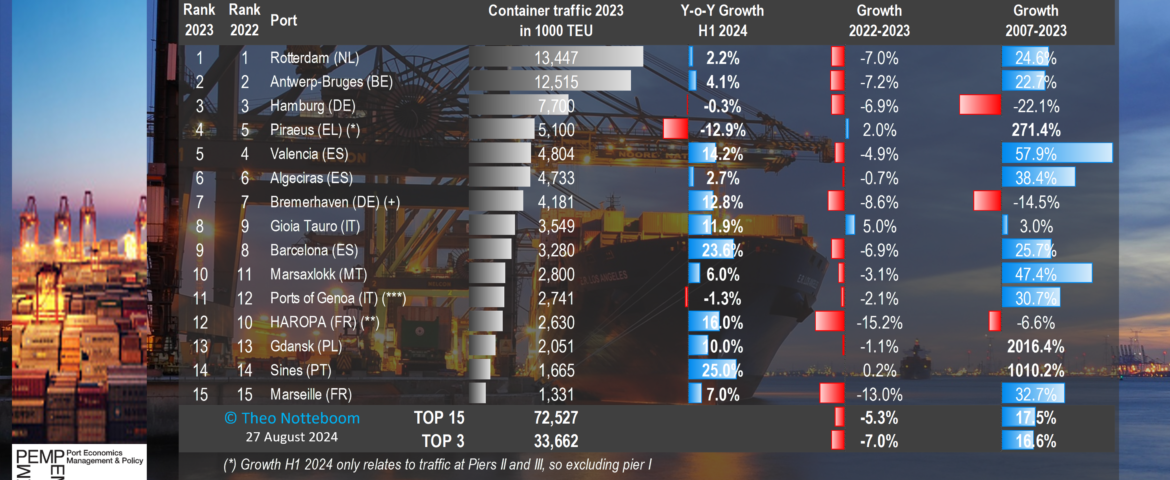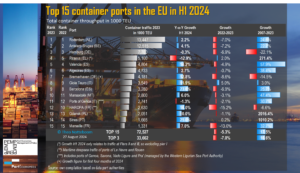PortEconomics member Theo Notteboom compiled a table showing the year-on-year TEU growth in the top 15 EU container ports in H1 2024:
While 2023 was characterized by a strong to moderate traffic decline in most ports, the first half of 2024 brought double-digit growth in 7 of the top 15 ports.
The effects of the Red Sea crisis and the associated shipping network modifications are traceable in the West Med and the Atlantic coast, with Sines, Barcelona, and Valencia all recording robust growth. Gioia Tauro’s growth accelerated in H1 2024, while Spanish transshipment hub Algeciras did not fully benefit from the favourable market conditions. The Greek port Piraeus incurred hefty traffic losses as the East Med became a maritime cul-de-sac due to the dramatic drop in Suez Canal transits.
The top three ports in the EU all recorded modest traffic changes in H1 2024. The Belgian port of Antwerp-Bruges shows the best performance among the top 3 with a 4.1% y-o-y growth, almost double the growth of Rotterdam. Hamburg’s volume stagnated. Bremerhaven saw a very healthy traffic development. Also, HAROPA did particularly well compared to other ports in the Northern range following a TEU dip in 2023.
Turning to the Baltic, the port of Gdansk reached a double-digit growth despite ongoing terminal extension works at the Baltic Hub.
If the current traffic trends continue throughout the remainder of 2024, the top 15 ranking will see some changes by the end of the year. Benelux ports Rotterdam and Antwerp-Bruges will remain the largest container ports in the EU by far. Valencia is expected to overtake Piraeus to become the fourth largest EU port in 2024 at a respectable distance from Hamburg. Also, Algeciras and Bremerhaven might overtake Piraeus, pushing the Greek port to position 7, closely followed by Barcelona. The French HAROPA is expected to gain two places to reach the tenth position in the ranking.













